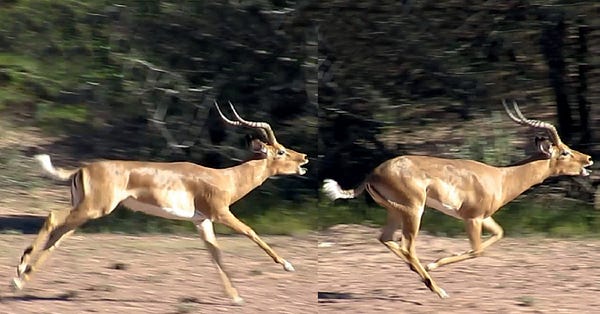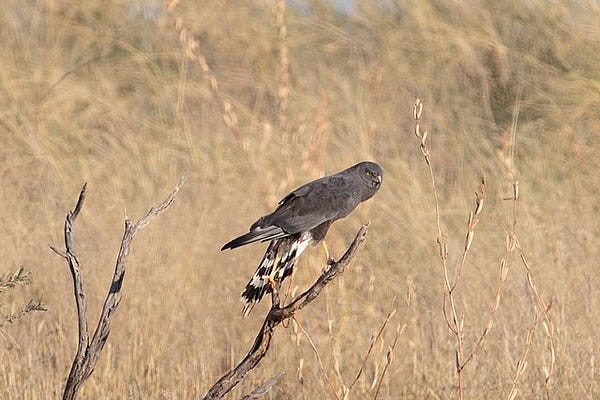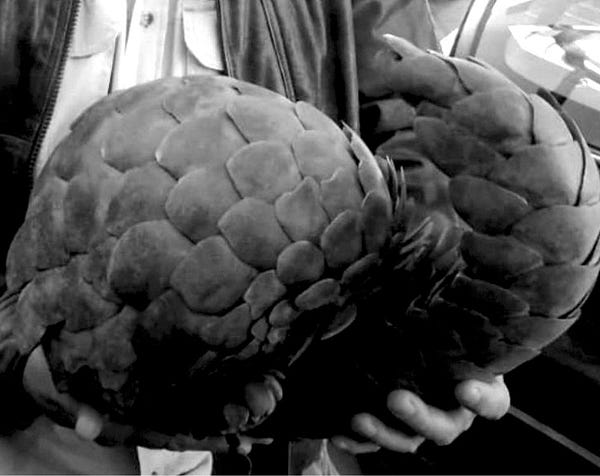Elephant twins + loo bats + black harrier threats + rare ray + pangolin poacher
Rare Kenyan elephant twins survive crucial first weeks despite drought
Rare baby twin elephants born in Kenya in January have survived the crucial first weeks of their lives. Normally only one of the twins survives. Mother elephants don’t normally produce enough milk to feed two, according to conservation group, Save The Elephants. The twins were born in Samburu National Reserve. Samburu has only ever recorded the birth of elephant twins once before in 2006. They didn’t survive. The survival of the latest twins is even more remarkable given the terrible drought affecting northern Kenya and other parts of the region. David Daballen, head of field operations for Save the Elephants, said: “It just goes to show how resilient elephants are and what wonderful mothers they make. We look forward to monitoring their progress.”


Amid habitat loss, pit latrines provide bats with a safe space
At least three species of bat in Kenya use pit latrines as places to roost and breed, according to new research. The three are the large-eared slit-faced bat, the Egyptian slit-faced bat and the heart-nosed bat. The study estimates that two billion people use pit latrines in Africa, providing lots of potential shelter for bats. The pit latrines, which bats access through the opening in the floor, are warm and safe. Heart-nosed and slit-faced bats were discovered living in pit latrines at a camp in Tanzania’s Ruaha National Park, according to a study published last year. The authors of that study said: “As habitat loss and land use change lead to the continuing destruction of natural roosting sites, improving our understanding of the characteristics of suitable roost sites in human-modified landscapes is vital for the ongoing study and conservation of bat species.”


Wind farms in South Africa could drive endangered black harriers to extinction
Wind farms in South Africa could drive an endangered bird of prey – the black harrier – to extinction in under 100 years. The authors predict that if just 3-5 adult birds are killed annually, the entire population (currently estimated at 1,300) could crash in under a century. “This striking result highlights the need to avoid potentially harmful infrastructure within the breeding range of the Black Harrier that could impact this fragile population,” they write in a new study published by the Royal Society Open Science. The core population of black harriers is found in the south of the Western Cape province of South Africa, where wind farms are proliferating. The study notes that at least eight black harriers were killed by wind farms in South Africa between 2016 and 2020.


Not once, but twice: rare ray spotted in Mozambique
Two sightings of the rare ornate eagle ray have been made in Mozambique. Only one previous sighting of the species from southern Africa was reported in 2018, in Richard’s Bay, South Africa. The Mozambican sightings were made three days apart by researchers from the Marine Megafauna Foundation (MMF). They were unable to determine whether it was the same individual they saw, or separate ones. The first one was seen at Bazaruto Archipelago National Park; the second in the Vilanculos Coastal Wildlife Sanctuary, around 55 kilometres (34 miles) to the south. The MMF team has been diving in and studying this part of Mozambique’s coast for 20 years. “The Bazaruto Seascape,” MMF field researcher Janneman Conradie said, “is always full of surprises.” The sightings are reported in the Journal of the Marine Biological Association of the UK.


Pangolin poacher jailed 10 years in South Africa
A court in South Africa’s Mpumalanga Province has sent a man to jail for 10 years for illegal possession of a Temminck’s pangolin. The sentence is the harshest imposed in the province so far, according to the African Pangolin Working Group (APWG), a network of conservationists working to protect Africa’s four pangolin species. “We applaud the outcome and trust that more magistrates hand down similar sentences for this crime in the future,” APWG said in a post to Facebook. The sentenced man, Tichaona Chifamba, was arrested while trying to sell the male pangolin in the town of Trichardt last August. The animal was in such poor condition that it later died. With its numbers in decline across Africa, the Temminck’s pangolin is considered vulnerable to extinction.





